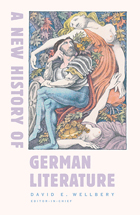
Beginning in the last third of the twentieth century, Australian literary and cultural studies underwent a profound transformation to become an important testing ground of new ideas and theories. How do Australian cultural products project a sense of the nation today? How do Australian writers, artists, and film directors imagine the Australian heritage and configure its place in a larger world that extends beyond Australia's shores?
Ranging from the country's colonial beginnings to its more globally oriented present, the nineteen essays by distinguished scholars working on the cutting edge of the field present a multi-faceted view of the vast land down under. A central theme is the relation of cultural products to nature and history. Issues explored include problems of race and gender, colonialism and postcolonialism, individual and national identity, subjective experience and international connections. Among others, the essays treat major authors such as Peter Carey, David Malouf, and Judith Wright.

The revolutionary spirit that animates the culture of the Germans has been alive for at least twelve centuries, far longer than the dramatically fragmented and reshaped political entity known as Germany. German culture has been central to Europe, and it has contributed the transforming spirit of Lutheran religion, the technology of printing as a medium of democracy, the soulfulness of Romantic philosophy, the structure of higher education, and the tradition of liberal socialism to the essential character of modern American life.
In this book leading scholars and critics capture the spirit of this culture in some 200 original essays on events in German literary history. Rather than offering a single continuous narrative, the entries focus on a particular literary work, an event in the life of an author, a historical moment, a piece of music, a technological invention, even a theatrical or cinematic premiere. Together they give the reader a surprisingly unified sense of what it is that has allowed Meister Eckhart, Hildegard of Bingen, Luther, Kant, Goethe, Beethoven, Benjamin, Wittgenstein, Jelinek, and Sebald to provoke and enchant their readers. From the earliest magical charms and mythical sagas to the brilliance and desolation of 20th-century fiction, poetry, and film, this illuminating reference book invites readers to experience the full range of German literary culture and to investigate for themselves its disparate and unifying themes.
Contributors include: Amy M. Hollywood on medieval women mystics, Jan-Dirk Müller on Gutenberg, Marion Aptroot on the Yiddish Renaissance, Emery Snyder on the Baroque novel, J. B. Schneewind on Natural Law, Maria Tatar on the Grimm brothers, Arthur Danto on Hegel, Reinhold Brinkmann on Schubert, Anthony Grafton on Burckhardt, Stanley Corngold on Freud, Andreas Huyssen on Rilke, Greil Marcus on Dada, Eric Rentschler on Nazi cinema, Elisabeth Young-Bruehl on Hannah Arendt, Gordon A. Craig on Günter Grass, Edward Dimendberg on Holocaust memorials.

The Vanishing Subject is the first comprehensive study of the impact of these pre-Freudian debates on modernist literature. In lucid and engaging prose, Ryan traces a complex set of filiations between writers and thinkers over a sixty-year period and restores a lost element in the genesis and development of modernism. From writers who see the "self" as nothing more or less than a bundle of sensory impressions, Ryan moves to others who hesitate between empiricist and Freudian views of subjectivity and consciousness, and to those who wish to salvage the self from its apparent disintegration. Finally, she looks at a group of writers who abandon not only the dualisms of subject and object, but dualistic thinking altogether.
Literary impressionism, stream-of-consciousness and point-of-view narration, and the question of epiphany in literature acquire a new aspect when seen in the context of the "psychologies without the self." Rilke's development of a position akin to phenomenology, Henry and Alice James's relation to their psychologist brother, Kafka's place in the modernist movements, Joyce's rewriting of Pater, Proust's engagement with contemporary thought, Woolf's presentation of consciousness, and Musil's projection of a utopian counter-reality are problems familiar to readers and critics: The Vanishing Subject radically revises the way we see them.
READERS
Browse our collection.
PUBLISHERS
See BiblioVault's publisher services.
STUDENT SERVICES
Files for college accessibility offices.
UChicago Accessibility Resources
home | accessibility | search | about | contact us
BiblioVault ® 2001 - 2024
The University of Chicago Press









